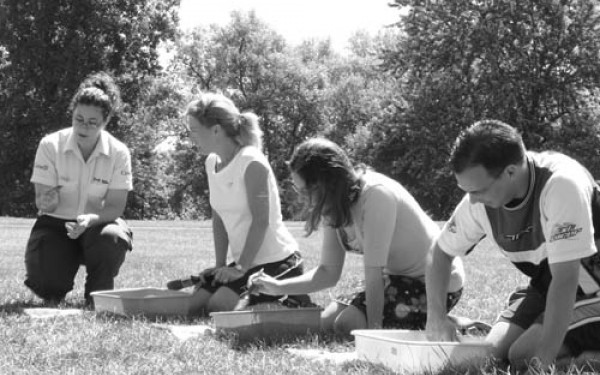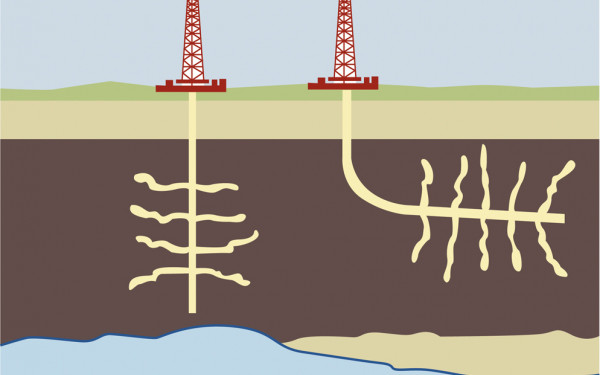NDG Panel Highlights Quebec’s Need to Move Forward
Faut Qu’on Se Parle Gets NDG Residents’ Take on Socio-Political Change in Quebec
In a room with crates stacked against the walls, tables lined up across the floor and refrigerators humming in the corner, over 30 Côte-de-Neige-Notre-Dame-de-Grâce residents gathered on Oct. 26 for a discussion that has echoed across the province for the last month.
When Faut qu’on se parle reached the NDG Food Depot last week, there was no shortage of opinions.
“We really wanted to engage a discussion with the people of NDG,” explained journalist and law student Aurelie Lanctôt in an interview. “It’s about an exchange of ideas and drafting concrete propositions.”
These “kitchen assemblies” and public consultations are taking place all around Quebec with a single goal in mind: to hear directly from Quebec residents about the changes they’d like to see in the province. Everything ranging from environmental issues to Quebec sovereignty was up for discussion.
Lanctôt, alongside journalist and documentary filmmaker Will Prosper, moderated the discussion. They sat quietly among the participants and listened intently, scribbling away in their notebooks, hanging onto every word uttered in the room. Today, it was not their turn to speak.
Organized by a group of Quebec progressives, Faut qu’on se parle is about finding solutions to issues like austerity, conflict and tuition hikes, from the citizens who are directly affected.
“What we want to do is collect the information and highlight some of the propositions in a book,” explained Prosper. “It’s not just about what is going to come out of it, it’s to engage conversation on how we can work in society and the political sphere but also how to engage in your community as a citizen.”
Changing Democracy
The discussion that took place almost entirely in French kicked off with a few statements and questions on Quebec democracy and mobilization. Participants questioned whether or not the electoral process was representative of Quebec voters and proposed ideas to encourage public participation in politics.
“When we talk about democracy, for me, it’s about learning how to live in a system of unequal power,” explained participant Michael Simkin to the group. “We need to discuss ways to bring our ideas to light and make our demands to people who will listen.”
Shyly at first, attendees spoke on the necessity of holding elected officials accountable for their actions. Participants suggested a reform of the electoral process, saying that ensuring diversity and gender equality would be a better representation of the public.
Vincent Hubert referenced the 2010 Belgian political crisis, when the Prime Minister resigned and a parliamentary majority failed to be established, preventing the formation of a government for almost 20 months.
“They had the best economic performance of the countries in the European Union,” Hubert said to the group, suggesting the benefits of a socialist government. “Democracy may be good sometimes but this [example] gives us a lot to think about.”
Linguistic Disparity
The lack of consensus on the subject of bilingualism began before the conference had even started. On the event’s Facebook page, potential participants expressed frustration with the fact that the event was listed as bilingual.
A post on the event’s Facebook page stated it was “unfortunate that we have to express ourselves bilingually in order to be understood.”
Comments ensued in support of the message, stating the need for the focus to be placed on French during the discussion, without the option of English. Many Facebook users brought up how Quebec is a French province, making the decision to present the discussion as bilingual, unwarranted.
“When I begin talking about my culture, my musical artists, my Quebecois films and my literature, I feel like I’m on another planet,” – Isabelle Létourneau
While the in-room discussion took place almost entirely in French, it didn’t take long for the subject to arise.
Many participants brought up questions concerning the education of Quebec children. Some blamed the disparity between Anglophone and Francophone populations on a lack of common ground and social interaction between children of both linguistic backgrounds. One participant mentioned how though interaction between Anglophones and Francophones may be friendly, they seem to have trouble finding common ground.
“When I begin talking about my culture, my musical artists, my Quebecois films and my literature, I feel like I’m on another planet,” Isabelle Létourneau explained to the group. “We have a big connection problem. I think one way to break that wall is through education.”
A survey launched in 2014 by UQAM psychology professor Richard Bourhis found that both Anglophones and Francophones feel the other language group threatens their culture. Based on the impressions of 421 students from UQAM and McGill
University, the environment of mutual suspicion displayed the differences in perspective and general lack of trust between the language groups, the Montreal Gazette reported.
Youth Participation
The discussion turned to what role the youth of Quebec play in its socio-political future. Many brought up how they needed to be given a chance to speak their minds and voice their opinions.
One participant pointed to the fact that many outlets provided space for young people to be politically active, including the students at the secondary and CEGEP level, but that many youths refuse to take action.
Youth turnout in election processes has been an ongoing struggle in Quebec since the 1970’s. According to the election Canada website, the 2011 Canadian Federal election voter turnout for Quebec youths aged 18 to 24 only reached 45 per cent. The following election in 2015 saw the number rise to an estimated 53.1 per cent.
Matthew MacDonald, an attendee who worked with Samara Canada—a nonpartisan political organization—during the last Canadian Federal election, explained how the organization’s intention was to get more youth to participate in elections at the federal level.
“We see a declining enrolment rate in election processes. We always come back to the idea that the past system sucks,” he said. “I haven’t heard for much public reform on the electoral process in Quebec. There are a lot of things that can be done as long as there’s a strong voice behind it.”

web_900_528_90.jpg)




__600_375_90_s_c1.jpg)
